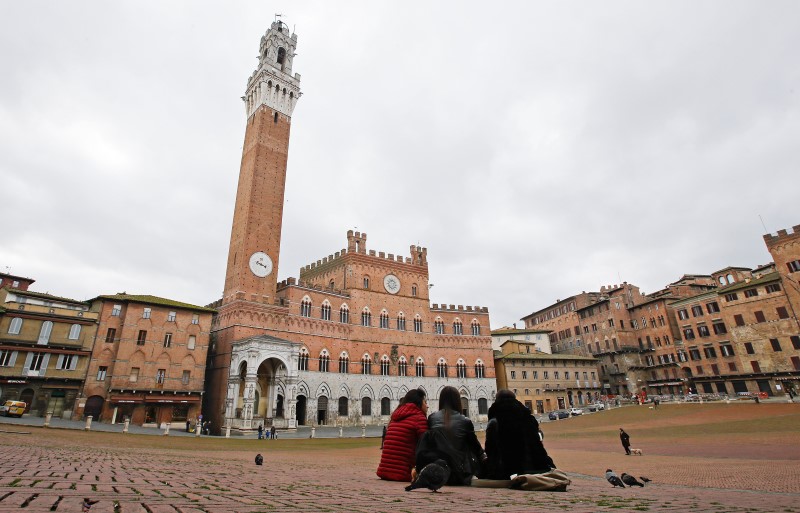By Geoffrey Smith
Investing.com -- The first week of the new quarter appears to be suggesting that asset managers believe in the European recovery.
By 5:30 AM ET (0900 GMT), the Euro Stoxx 600 was up 1.2% at 365.52, continuing a rally that started in mid-March. It's over 27% up from those lows, but is still 16% below its pre-lockdown levels.
The German DAX was up 1.8% and the FTSE 100 was up 0.8%.
For most of the three and a half months since markets bottomed, Europe has lagged the U.S., due to some initial concerns about the Eurozone policy response and to the relatively light weighting of tech stocks that appear best placed to survive and prosper in the post-pandemic world.
However, there’s a growing sense that Europe should enjoy a rare moment of outperformance in the coming months. Not only is the U.S. election and all the associated uncertainties for U.S. policy direction, starting to loom large. But the economy itself appears to be better positioned for a more convincing rebound, given Europe’s better performance in containing the coronavirus. Policy-makers in Europe and the U.S. are nearly unanimous in agreeing that there can be no economic recovery without getting the virus under control, so the state of the medical emergency matters enormously to market valuations.
With the exceptions of the U.K. and Sweden, Europe has throttled Covid-19. From a peak of around 35,000 in April, the rate of new infections per day has fallen to less than 5,000. That compares to a daily record of 52,000 in the U.S. on Monday, with a clearly rising trend and increasing evidence that economic reopening is being delayed or even reversed.
High-frequency data such as IHS Markit’s purchasing managers indices the Ifo and Insee surveys of German and French business confidence also point to a smart rebound in activity in the third quarter. While the Eurozone composite PMI was still – just – in contractionary territory in June, the first flows of summer tourists in July should ensure that it returns above 50 next month.
To add to this, European policy-making is enjoying a rare moment of enlightened consensus, with the vast majority of EU members – including Germany and France – aligned in pushing for a ground-breaking 750 billion euro recovery fund that will support the economy from next year. The phantom threat of the German constitutional court to the ECB’s monetary stimulus is receding as Germany’s lawmakers take the side of the ECB. And European banks are about to channel an extra 549 billion euros from the ECB’s last ‘TLTRO’ operation into the economy now.
Of course, the outlook still has huge risks, not least in the shape of British tourists spreading the virus through the laughably-named ‘air bridges’. And longer-term, says ING’s Carsten Brzeski, you can fret about the likelihood of a permanently higher jobless rate and the risk that – in a de-globalizing world – Europe won’t be able to export its way to recovery as it has done in the past.
However, those are arguably worries for another quarter.
